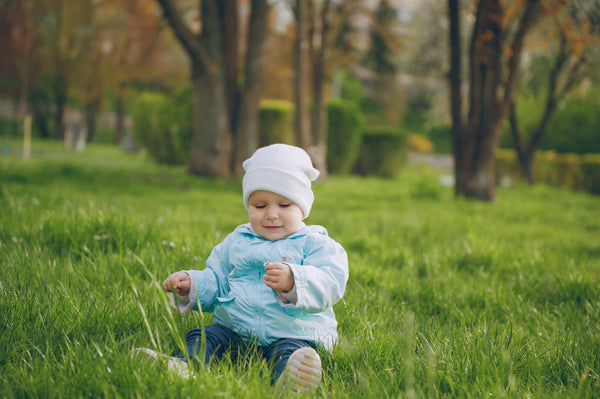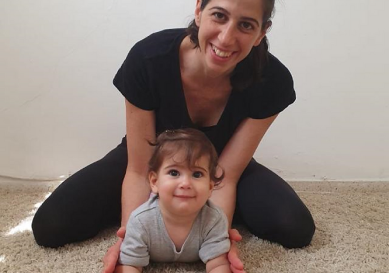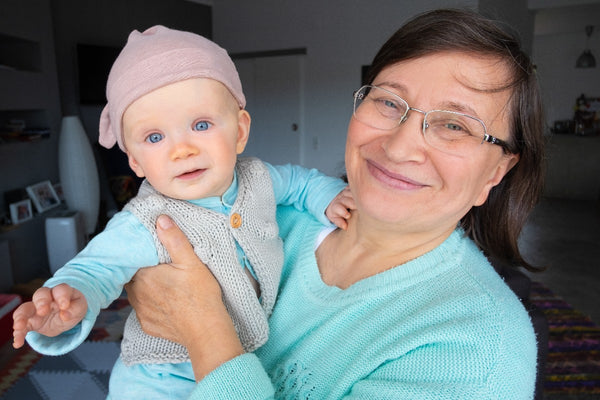
Unlocking the Power of Sleep
Nurturing Healthy Sleep Habits for Lifelong Well-being and Cognitive Growth
Sleep is an essential prerequisite for the growth and development of infants, encompassing emotional well-being and vital bodily functions. While often perceived as a period of rest, sleep is a time when the brain remains active. Particularly during the newborn phase, infants undergo intense development, necessitating sufficient sleep for optimal progress. On average, a newborn infant requires approximately 16-18 hours of sleep per day.
During the initial weeks of a baby's life, they have yet to establish a set day-night rhythm, and their sleep-wake cycle, known as the circadian rhythm, is not fully developed. Newborns tend to sleep in intervals of 2.5 to 4 hours at a time. Establishing a sleep pattern synchronized with feeding times, both during the day and night, is one way to facilitate the development of their circadian rhythm. Around 10-12 weeks of age, infants begin to align their sleep patterns with nighttime.
Sleep studies involving infants have revealed that approximately 20%-30% of all infants experience night awakenings during the first two years of life. However, as children mature, the number of awakenings per night decreases, and the ability to sleep through the night improves. By 12 weeks of age, 50%-75% of infants can sleep through the night, increasing to at least 90% by 6 months of age. Despite a general trend of decreasing awakenings, night awakenings exhibit the highest variability among all sleep measures, making them an intriguing focus for research on sleep quality in young infants.
According to the National Sleep Foundation (NSF), the recommended daily sleep durations are as follows: 14–17 hours per day from birth to 3 months, 12–15 hours per day from 4 to 11 months, 11–14 hours per day for infants aged 1–2 years, and 10–13 hours per day for preschoolers aged 3–5 years. With the exception of newborns to 3 months, the latest NSF recommendations have increased by at least 1 hour compared to the previous recommendations due to reported changes in sleep durations over recent years, as determined through a systematic literature search and expert panel review.
There are two primary types of sleep cycles that babies experience: active sleep (known as rapid eye movement or REM) and quiet sleep (non-REM). During active sleep, crucial neuronal connections are formed in the brain, while unused connections are pruned away. Active sleep is when dreaming occurs. In quiet sleep, the muscles receive increased blood supply, energy is replenished, and tissue growth and repair take place.
Now that you understand the significance of sleep for your baby, it's important to help them obtain the rest they need for healthy brain development. Here are five simple steps to achieve this:
-
Recognize the Importance of Sleep: Sleep is just as vital as proper nutrition in supporting your baby's brain development. A Canadian study on toddlers demonstrated that those who received ample sleep exhibited enhanced cognitive function and skills, including improved attention, goal-setting, and task performance.
-
Know the Signs of Sleepiness: Sleepy cues can vary depending on age and personality. Some infants rub their eyes, while others become fussy. Being aware of these signs can assist you in recognizing when your baby needs to sleep.
-
Put Them to Bed Drowsy instead of Sound Asleep: Over time, this strategy can help your baby learn how to fall back asleep independently when they wake up. All babies experience brief awakenings between their 1.5- to 2-hour sleep cycles. If you consistently rock your baby to sleep, they may come to expect this when they awaken during the night.
-
Swaddling: Some experts believe that babies younger than 6 months sleep better when wrapped snug
Sources:
https://www.enfamil.com/articles/importance-of-sleep-child-development/

















































